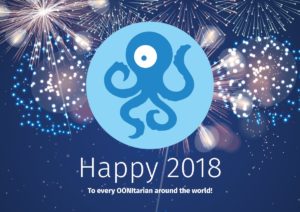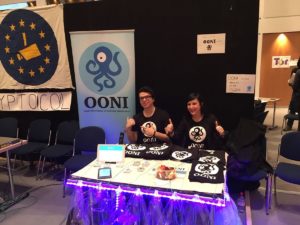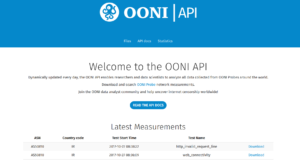We first met Moses Karanja several years ago at the Citizen Lab Summer Institute. He’s a Kenyan information controls researcher, having previously worked with Strathmore University Law School research centre, CIPIT. Currently, he’s a PhD student at the University of Toronto. Over the last years, Moses has championed OONI community engagement across Africa. Thanks to his tireless efforts, communities …
Category: Internet censorship
May 05
ParkNet: Short Documentary on Internet Censorship in Cuba
Last year we had the opportunity to travel to Cuba to explore its internet landscape. We spent most of our time hopping from one public WiFi hotspot to another, measuring networks in Havana, Santa Clara, and Santiago de Cuba. You might remember that we published a research report on our findings. Today we publish a short documentary (“ParkNet”) on …
Apr 12
OONI’s recent participation at events in Africa, India, and Europe
Over the last months, the OONI team had the opportunity to host workshops, give presentations, and participate in discussions at the following conferences and events: Seminar at the University of Cape Town (South Africa) Internet Policy in Africa: Research Methods for Advocacy workshop (Uganda) Nullcon 2018 (India) Internet Freedom Festival (IFF) 2018 (Spain) Tor Meeting (Italy) These events provided us …
Apr 12
Sierra Leone: Network disruptions amid 2018 runoff elections
Last weekend, two network disruptions occurred in Sierra Leone right before and after the country’s runoff elections. This post examines these disruptions and shares data that corroborates local reports. It seems that the network disruptions were caused by an ACE submarine cable cut. Google traffic and BGP data suggest that the second disruption, following the runoff elections, could be an …
Apr 12
Investigating Internet Blackouts from the Edge of the Network: OONI’s new upcoming methodology
Imagine a day where the internet is shut down completely. You have to work, check the news, and communicate with your friends and family. All of a sudden, you can’t do any of that, because there simply is no internet. It feels like a strange form of time travel has taken place: you’re thrown several …
Jan 14
Iran Protests: OONI data confirms censorship events
At this point, you have probably read all about the major anti-government protests that erupted across Iran over the last week. You may have even read about how services like Telegram and Instagram were blocked, reportedly as part of a government attempt to stifle the unrest. We publish this post to share OONI network measurement data collected from Iran between …
Jan 14
Year in Review: OONI in 2017
Jan 14
OONI at the 34th Chaos Communication Congress (34C3)
The OONI team attended the 34th Chaos Communication Congress (34C3): Europe’s largest hacker conference on technology, society, and utopia. We hosted an assembly (called the OONI-verse), and our project lead (Arturo Filasto) presented OONI. Learn more here. Publication date: 23rd December 2017 Publisher: Open Observatory of Network Interference (OONI)
Dec 08
How Pakistan blocked news outlets, social media sites, and IM apps amidst protests
Last weekend, a number of social media sites and news outlets were blocked in Pakistan during Islamist protests. Protesters gathered in Islamabad alleged that Mr. Zahid Hamid, the Federal Law Minister, should be removed from his position because he omitted a reference to the Prophet Muhammad in a parliamentary bill. On Saturday, 25th November 2017, law enforcement agencies …
Nov 06
Investigating internet censorship with OONI data
It’s easy to notice when popular platforms that we commonly use – like Google, WhatsApp, or Facebook – are blocked. The not-so-easy part is noticing the censorship of all those other, less popular platforms, such as the sites of minority groups. Due to their sensitive nature, minority group sites are probably more likely to be …




